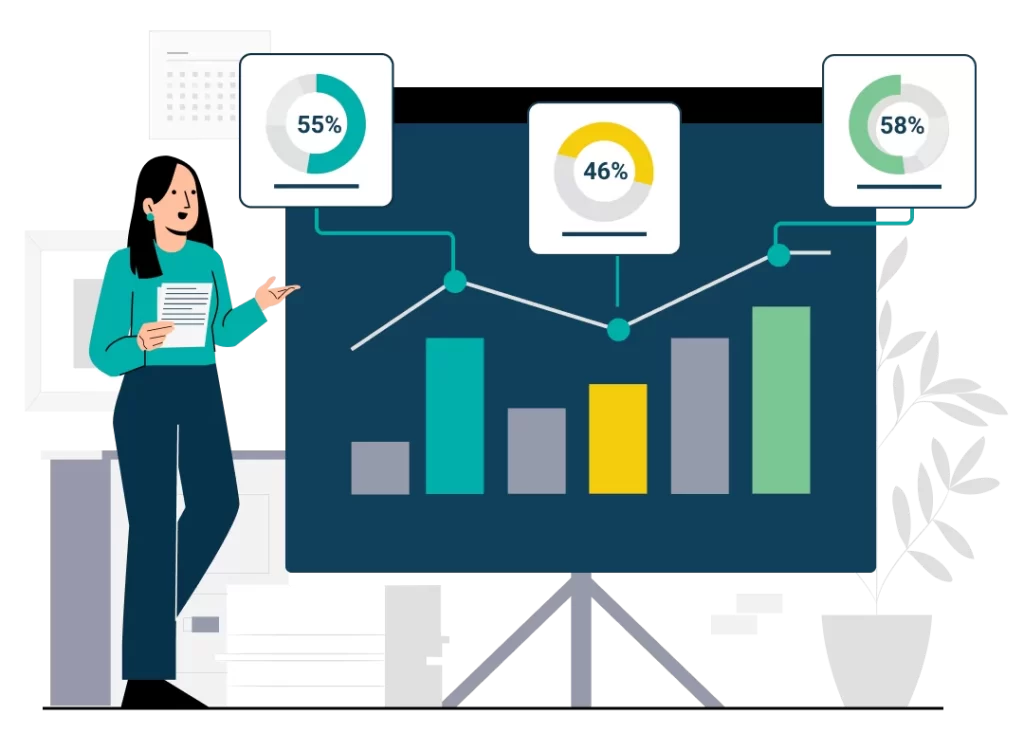The title might strike you as a dumb question. App vs website? We’re deep in the 2020s. You probably already have a website. But if you’re launching a new product or service or ecommerce play, or you’re finding competition is eating into your revenue, then the question is one you’re already asking yourself – go down the path of, say, ecommerce app development, or down the path of ecommerce website development?
This article is going to help you make that decision. It’s going to start with a quick tech review, followed by a short discussion of the trade-offs between the two options, then it will jump into the surprise “have your cake and eat it too” twist.
Let’s start with the tech.
There are only three types of websites
That’s right. Only 3. We’re talking under the hood, not content. Here they are:
Static
Static websites serve visitors pre-generated pages of content. This is how websites worked when the internet was born. It’s had a resurgence in popularity recently due to its speed and security. This tech is best used for sites that don’t change often – blogs, documentation, and brochureware sites.
Dynamic
Dynamic websites serve visitors pages that include content pulled from a database or generated by code. This is called server-side rendering, as the layout and content is assembled by the server delivering the page. It’s more complicated than that, but we’re keeping things simple.
If a website isn’t static then it’s dynamic. This includes the millions of WordPress sites in existence along with every other site on the internet. The term “dynamic” is now more of an umbrella term, as there are many different ways to build a dynamic website. Web apps represent a relatively recent strategy for building dynamic websites.
Web App
You might have seen this style referred to by a couple of acronyms: “SPA” / “PWA”. “Web app” is simpler. and they all mean a website built to behave like an application. Instead of responding to user interaction by following clicked links to new pages rendered by a web server, web apps pull data off the server and redraw the contents of the current page to display it. This is faster than requesting and loading new pages and creates that “app” feel.
The biggest difference between a web app and web site is web apps are more complex than server-side dynamic websites due to the added complexities of marshalling content on and off the page and the richer interactions they tend to implement.
Twitter is an example of a web app that features the kind of detailed interface and high level of interactivity that used to be only associated with dedicated apps.

If a website looks like an app and acts like an app, is it an app?
No. While you can build a website with an app-level user experience, when it is visited from a handset it will not have the integrations into the handset operating system a native app will enjoy. It will also lack the look and feel of a native app, placing it visually in a lower tier.
Performance in some areas will also suffer. The biggest one is smooth scrolling. Despite the power of modern handsets, the complexities of displaying rich content in a browser window is still not as smooth and efficient as within a native app.
Is it easier to build an app or a website?
A modern website built from scratch instead of on top of an existing platform like WordPress or Ghost can be as complicated as an app. When you have things like user authentication, a database for storing data, a way to send emails, an admin interface for tracking metrics and providing customer service features, as well as a professional user interface, you are looking at a lot of code just as you would with an app. With features comes code. There is no avoiding it.
However, there are some tools out there that will make an app from a website. Really, it is just a an app that only displays your website. But users can already access your website on their phone, as we discuss below, so why go this route?
Keeping the killer feature of websites
Websites have one killer feature that apps don’t have – they run everywhere. They run on desktops. They run on phones, no matter who makes them. They can even run on smart TVs.
When you are deciding between an app and a website you need to understand where your users are and how they are going to interact with you.
It’s a balancing act between audience, features that you need, features that will appeal to the audience, and cost.
The cost of websites vs apps
A native app with similar functionality to a website is going to cost more than the website. The main reason is simple economics. The number of app developers is much, much smaller than the number of website developers and demand for their services remains strong.
As each of the two major platforms, Android and iOS, have different development environments, releasing your app on both platforms can (roughly) double your costs.
Another cost apps must pay is time. Getting approval for your app from each platform app store takes time, sometimes weeks, with any problems potentially causing long delays. No-one can stop you from launching a website whenever you want.
Each option has its benefits. But you should know there is a strategy that can get you the best of both worlds – the lower cost and lower time to market of a website, and the power and polish of a native app – while spreading out your risk.

The app that starts out as a website
This is our favourite strategy for creating a new product or service. It combines the rapid development and deployment of a website, while at the same time it lays the groundwork for the heavy lifting required to create an app.
This strategy is based on React Native. React Native is a spin-off of ReactJS, one of the world’s most popular JavaScript frameworks. If you’ve never heard about React Native you might want to read Everything you need to know about React Native apps – the business side.
By building a web app using ReactJS it takes much less effort to convert it to a native app using React Native.
By starting with a web app you can prove the business model of your product or service with a lower investment than going straight to a native app. Once the business model is proven, moving from web app to native app is straightforward.
How straightforward depends on including this path in your strategy. And why wouldn’t you? Your app will use the same backend as your website. Your UX has been tested and proven. If you built your web app on ReactJS it becomes a matter of changing code that would tell a web browser to draw a form to React Native code that displays a native form on a handset.
And the same React Native code works on Android and iOS. You don’t need a separate team for each platform.
The final answer to the app or website question
So, the final answer to whether you should build an app or a website is you should build the website first. A website designed to be a web app. And if you use ReactJS that website will take you 80-90% of the way towards your app.
When the website shows you have a foothold in the market, it is simply a matter of converting the website into a native app.
If you want to know more about this strategy and how it could work with your business, get in contact with us and we can discuss the details with you.












